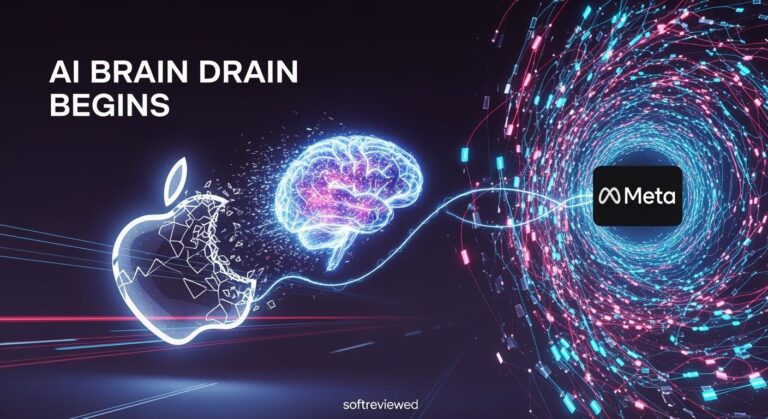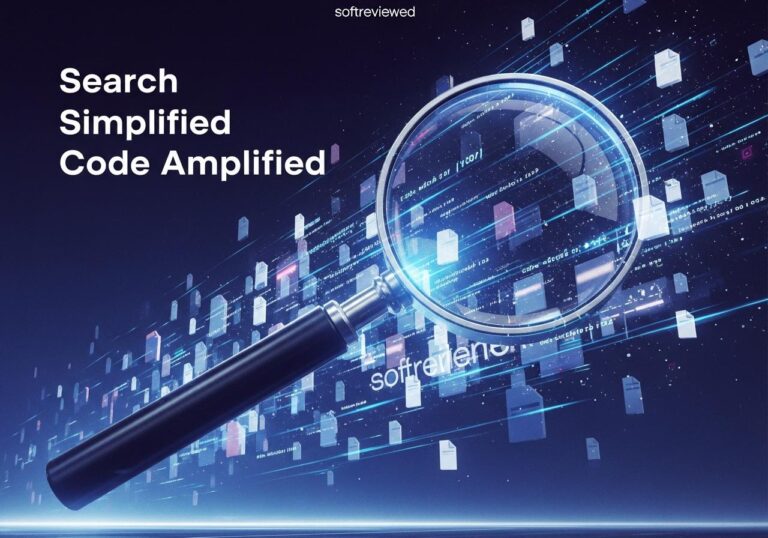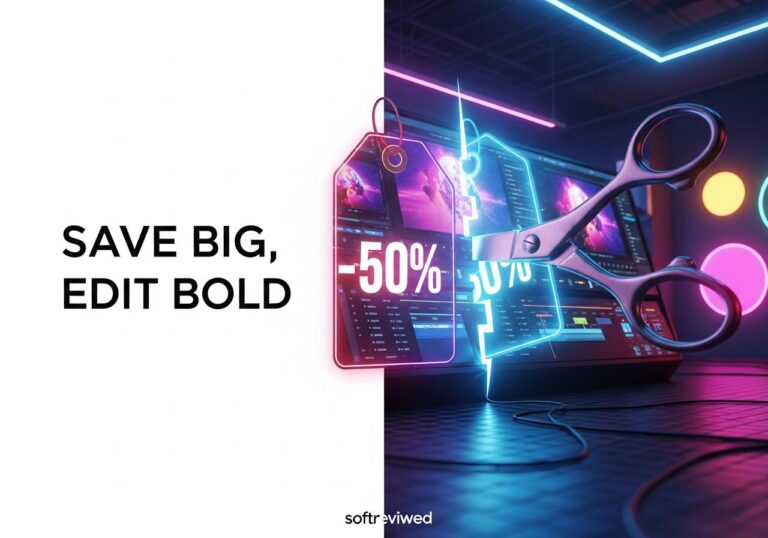The AI Talent War: Meta’s Strategic Acquisition
How tech giants are competing for top AI talent in the race toward artificial general intelligence (AGI)
Apple PhD & Ex-Google AI Engineer
A high-profile AI researcher with dual pedigree from Apple’s PhD program and Google’s AI division becomes the latest acquisition in Meta’s aggressive talent strategy.
Struggling Apple AI Efforts Prompting Leadership Exodus
Apple’s challenges in AI development have triggered a significant brain drain, with key AI leaders and engineers seeking opportunities at more AI-focused competitors.
Meta’s $200M+ Multi-Year Package
Meta is offering unprecedented compensation packages exceeding $200 million over multiple years to secure top-tier AI talent, significantly outpacing traditional tech industry compensation.
On-Device AI Expertise Joins Meta’s Superintelligence Lab
The recruited engineer brings specialized knowledge in efficient on-device AI processing—critical expertise as Meta builds out its ambitious superintelligence research division.
Recruitment Strategy: Poaching Top Talent from Rivals
Meta’s aggressive recruitment approach specifically targets competitors’ AI teams, offering substantial compensation increases and greater research freedom to lure established experts.
AI Race Intensifies as Tech Giants Scramble for AGI Dominance
The talent war reflects the high-stakes competition among Meta, Google, Microsoft, and Apple to achieve artificial general intelligence first, with billions in investment and future market dominance at stake.
##The Great AI Talent Heist: How Meta's Raid on Apple Signals a Silicon Valley Power Shift
In the high-stakes world of artificial intelligence, talent isn't just an asset; it's the entire kingdom. And in what can only be described as a royal coup, Meta has snatched one of Apple's crown jewels. Ruoming Pang, the distinguished engineer who led Apple's foundational AI models team, has jumped ship to join Meta's ambitious Superintelligence unit. This isn't just another executive shuffle. It's a seismic event, underscored by a reported compensation package worth over $200 million, that exposes a deepening crisis within Apple's AI strategy and cements Meta's reputation as the industry's most aggressive poacher.
The move is the latest and arguably most significant shot fired in the escalating AI talent wars. As companies like Meta, Google, OpenAI, and Anthropic battle for dominance, they're not just competing on code and compute power—they're fighting for the brilliant minds capable of building the future. Pang’s departure, alongside other high-profile defectors, signals a major Apple brain drain and raises a critical question: Is Apple, the world's most valuable company, losing its grip on the most important technological race of our generation? 🤔
This story is about more than one engineer. It's about clashing corporate cultures, multi-million dollar "mercenary" offers, and the frantic, all-out sprint to build Artificial General Intelligence (AGI). Let's break down what happened and why it matters.
A Superintelligent Offer: The Staggering Deal That Lured Apple’s AI Chief
The sheer scale of Meta's offer to Ruoming Pang is mind-boggling. Reports suggest a multi-year package valued at more than $200 million, a figure that far exceeds the compensation for most executives at Apple, including many senior vice presidents. This wasn't just a competitive offer; it was a statement. Apple reportedly didn't even try to match it.
Who is Ruoming Pang, and Why Was He So Valuable?
So, who is the man worth a king's ransom? Before joining Apple in 2021, Ruoming Pang was a veteran of Google, where he worked on foundational systems and speech recognition. At Apple, he was no small fry. He led the 100-person foundational models team (known internally as AFM), the group directly responsible for the core technology behind Apple Intelligence and the long-awaited Siri overhaul. Features like Genmoji, on-device text summarization, and smart notifications all stemmed from the work of Pang's team. He was, in essence, one of the key architects of Apple's consumer-facing AI future. His departure leaves a massive leadership vacuum at a critical time.
Deconstructing the "Mercenary" Pay Package
Meta's offer is a masterclass in aggressive recruitment. It's not just a fat salary. These blockbuster deals are typically structured with several components designed to be irresistible:
- 📌 Massive Signing Bonus: OpenAI CEO Sam Altman has claimed Meta has offered signing bonuses as high as $100 million to poach his employees. These upfront cash payments are designed to compensate for unvested equity an employee might be leaving behind.
- 📌 Hefty Stock Awards: The largest part of the package is usually in the form of company stock, but with a twist. The vesting schedules are often longer than the typical four years, and payouts can be tied to ambitious performance targets, such as significant growth in Meta's stock price.
- 📌 A Seat at the AGI Table: For top researchers, the appeal isn't just financial. It's the promise of working on the most ambitious projects with virtually unlimited resources. Pang is joining Meta's Superintelligence Labs, a division with the singular goal of building AGI.
The Red Flag for Cupertino: Unpacking Apple's AI "Brain Drain"

While Pang's departure is the headline, the real story for Apple is the alarming trend it represents. Confidence in Apple's ability to build its own core AI models appears to be slipping, both internally and externally. The lackluster debut of Apple Intelligence, with many key features delayed, has only fueled these concerns. As competitors ramp up their AI capabilities, Apple may risk falling behind if it doesn’t swiftly address these issues. Criticism surrounding Apple’s research on AI models highlights the growing perception that the company is not keeping pace with industry advancements. Furthermore, the fear is that without significant innovation, Apple could lose its competitive edge in a market increasingly driven by artificial intelligence.
More Than Just One Departure: A Troubling Trend
Pang is not an isolated case. His exit follows that of his close colleague, Tom Gunter, another senior AI leader who left just a month prior. Sources suggest that several other engineers from Apple's foundational models group are also planning their exits, potentially to Meta or other rivals. This exodus points to a serious morale problem within Apple's most critical AI teams.
The situation has reportedly become so unstable that Apple has placed two of its most senior executives, software chief Craig Federighi and Vision Pro head Mike Rockwell, in direct oversight of the AI projects to steady the ship.
Internal Chaos and Strategic Indecision at Apple
What's driving this Apple brain drain? It seems to be a combination of strategic uncertainty and internal frustration.
For years, Apple's AI/ML team has reportedly been plagued by a slow, risk-averse culture, with some employees even nicknaming the division "AIMLess." There's been growing tension within the company over a fundamental question: should Apple continue pouring resources into building its own foundational models, or should it rely on partners like OpenAI and Anthropic?
This indecisiveness has reportedly demoralized researchers who have been working hard to build competitive in-house models, only to see leadership flirt with outsourcing the very technology they're developing. This internal conflict, combined with Meta’s aggressive and financially rewarding recruitment, creates the perfect storm for a talent exodus.
Zuckerberg’s "Dream Team": Building Meta’s Superintelligence Labs Brick by Brick
While Apple appears to be floundering, Mark Zuckerberg is moving with singular focus. He is assembling an AI "dream team" with the explicit goal of building superintelligence, and he's using Meta's deep pockets to do it.
The New Kids on the Block: Meet the Leadership
The new Meta Superintelligence Labs is being built around a core of high-profile, external leaders.
- ➡️ Alexandr Wang: The 28-year-old co-founder and former CEO of Scale AI has been appointed Meta's Chief AI Officer. His recruitment was part of a massive deal where Meta invested $14.3 billion for a 49% stake in his data-labeling company. Wang is a legendary networker in the AI world, bringing deep connections and industry insight to Meta.
- ➡️ Nat Friedman: The former CEO of GitHub is co-leading the new group, focusing on AI products and applied research.
- ➡️ Daniel Gross: An AI startup founder and investment partner of Friedman, Gross has also joined the superintelligence effort.
This leadership structure, reporting directly to Zuckerberg, is designed to cut through bureaucracy and accelerate progress toward AGI.
A Roster of Recruits from Every Major AI Lab
Pang is just the latest star player to join the roster. Meta's recent hiring spree has successfully poached top talent from every major competitor.
| New Hire | Former Company | Significance |
|---|---|---|
| Ruoming Pang | Apple | Led the foundational models team behind Apple Intelligence. |
| Yuanzhi Li | OpenAI | A key researcher from the creators of ChatGPT. |
| Anton Bakhtin | Anthropic | Worked on Claude, a major competitor to GPT models. |
| Multiple Researchers | OpenAI & Google DeepMind | Meta has hired over a dozen other researchers who worked on projects like GPT-4o and other advanced models. |
Zuckerberg is playing a zero-sum game: every top researcher he hires for Meta is one less person working for a rival.
The Mission vs. The Mercenaries: A Clash of Cultures
Meta's aggressive, cash-heavy approach has not gone unnoticed, drawing sharp criticism from competitors, particularly OpenAI CEO Sam Altman.
OpenAI's Stance: "Missionaries Will Beat Mercenaries"
Altman has publicly called Meta's recruitment tactics "distasteful." In a memo to his own employees, he framed the battle as an ideological one, confidently stating that "missionaries will beat mercenaries."
His argument is that while giant pay packages can attract talent, they can't buy loyalty or a genuine commitment to a long-term vision. OpenAI, he argues, is a mission-driven organization focused on ensuring AGI benefits all of humanity. He's betting that this sense of purpose will ultimately be more powerful than a massive signing bonus.
Is Cash King in the AI Race?
The "mission vs. mercenary" debate is now a central theme in the AI talent wars. Can a strong, inspiring culture compete with nine-figure compensation packages?
- ✅ The Case for Money: In a field where demand for top talent vastly outstrips supply, compensation is undeniably a powerful lever. Meta is proving that it can attract world-class experts simply by outbidding everyone else.
- ⛔️ The Case for Mission: A culture built solely on financial incentives can be fragile. It risks attracting researchers who are more loyal to the highest bidder than to the company's long-term goals. This can lead to a volatile and transactional work environment.
The reality is likely somewhere in the middle. The winning companies will probably be those that can offer both: a compelling mission and highly competitive compensation.
Ripples Across the Industry: What This Means for You (and Everyone Else)
This high-level corporate drama has real-world consequences that extend far beyond Silicon Valley.
The Soaring Cost of Genius
The most immediate impact is the skyrocketing cost of AI talent. When companies are willing to pay hundreds of millions for a single individual, it drives up salaries across the board.
This creates immense pressure on margins, even for tech giants. For smaller companies, startups, and academic institutions, it becomes nearly impossible to compete financially. This could stifle innovation by concentrating the world's best AI minds within a handful of mega-corporations, potentially leading to less diversity in research and ideas. As a result, opportunities for collaboration and partnership may dwindle, further isolating smaller players in the field. Initiatives like Mira Murati’s Thinking Machine Labs could offer a glimmer of hope, providing a platform for talented individuals to share their ideas without the constraints of hefty financial burdens. However, without broader support and investment, these efforts may struggle to make a significant impact in an increasingly monopolized landscape.
A Widening Chasm in AI Development
The concentration of talent and resources could create a two-tiered AI world.
- The Titans: Companies like Meta, Google, and Microsoft that can afford the massive investments in talent and infrastructure (like NVIDIA GPUs) required to build frontier models.
- Everyone Else: Smaller players who may be forced to rely on the models and platforms provided by the titans, limiting their ability to innovate independently.
For consumers, this could mean that the next wave of transformative AI features on your phone, in your car, or at your job will likely come from one of these few dominant players.
Where the Chips Fall Next
For Apple, this is a moment of truth. The departure of key leaders like Pang is a wake-up call. The company must now stabilize its AI teams, clarify its strategy, and decide whether it truly has the will to compete in the foundational model race. Its legacy of privacy-first, on-device processing is a powerful differentiator, but it may not be enough if it can't keep the talent needed to innovate. You can read more about Apple's commitment to on-device AI on its official site.
For Meta, the challenge is different. It has assembled an incredible team on paper. Now, it must turn that collection of individual stars into a cohesive unit that can deliver on the monumental promise of superintelligence. The pressure to produce results will be immense.
A New Chapter in the AI Arms Race
The poaching of Ruoming Pang is more than just a headline; it's a turning point. It signals a new, more aggressive phase in the AI talent wars, where money talks louder than ever before. While Meta builds momentum with its deep pockets and singular focus, Apple is left to grapple with a crisis of confidence and retention.
This high-stakes battle for the brightest minds in AI is not just corporate gamesmanship. It's a fight that will shape the direction of technology for decades to come, defining who builds our intelligent future and on what terms.







